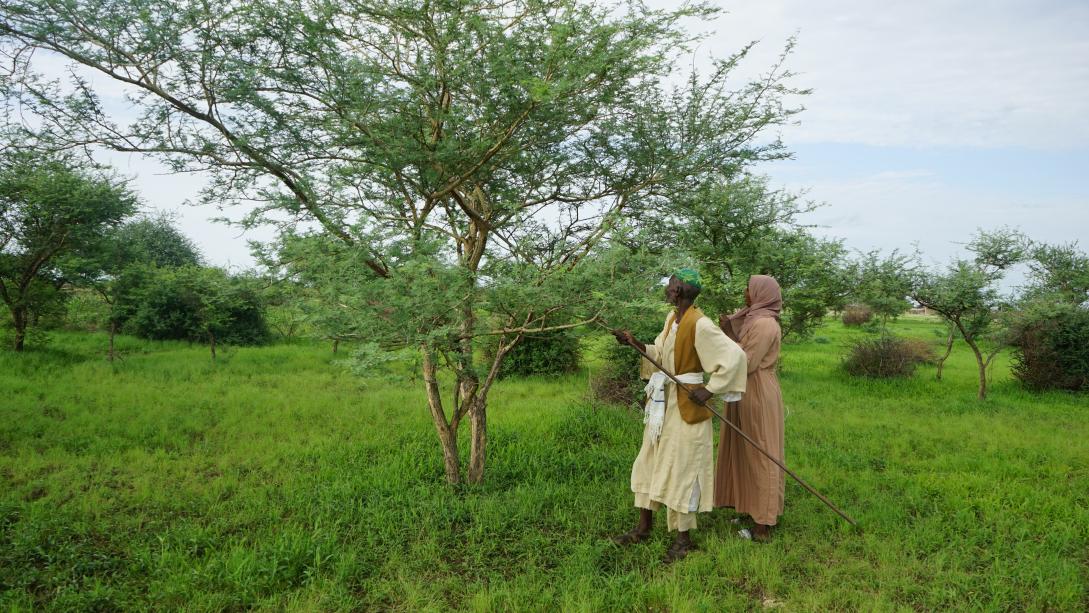The EU supports the continuation of the production of gum Arabic, the unique natural product of Sudan

Most Acacia forests are in Darfur, Kordofan and Blue Nile, territories highly impacted by the war. However, gum rabic is one of the few Sudanese exports that has been sustained throughout the devastating conflict in the country.
6 million people, 15% of the population of Sudan, depend on the revenue generated from the production of this unique natural resource. This converts the commercialisation of the production into something paramount not only in times of war but also in view of the post-conflict recovery of the country.
In spite of the many difficulties experienced, including security concerns, strains on markets, transport, communication networks and the collapse of the banking system, the European Union-funded initiative has helped enhancing the gum Arabic production and the sustainability of the value chain. The project has been implemented by the Agence Française de Developpement and the Forest National Corporation of Sudan.
A focus on women and young people
Now that the conflict advances towards its second year, the support of the European Union focuses on building the resilience of the rural population in Sudan in locations where scarcity of resources has been often the norm.
Multiple approaches were taken to increase the quality of commercialisation options of gum Arabic, in a rural area that already faces multiple challenges such as the absence of schools and of access to basic needs like water. Key actions of the project were training of farmers on improved practices and techniques (e.g. use of Sonki for tapping), the implementation of contract farming, the facilitation of access to finance, the organisational and technical support to the gum Arabic Producers Associations’ and the inclusion of women and young people to encourage the adoption of new production and management techniques.
The multiplying and transversal impact of the project in Gedaref, Blue Nile and Sennar was visible through the capacity generated in the participants.
Zeinab, who participated in a training for enhancing the production, explains key learnings gained, "We used to tap gum Arabic with an Axe which is a harmful practice for the tree. We used to leave the gum on the ground without drying, so it was normally collected when it was still humid, leading to poor quality production and lower prices. Now we understand that for higher quality gum Arabic, we need to allow the gum to dry and then collect it. With this improved method, the price of gum Arabic will likely increase during the new harvest season."
An additional vocational training for women on nutrition and soap making aimed to diversify the sources of income was a transformative experience for participants like Hanan, in Azaza village. She and her course mates initiated their own soap business afterwards. In some cases, weekly earnings reached between 12,000 - 15,000 Sudanese pounds ($ 6- 8).
In Sennar, an Ethical Leadership Training was referred by women participants as a success due to the cohesion reached by the project, In another workshop to produce improved stoves, Ikhlas and other participants from the Alnahda Women Gum Arabic Association will be able to reduce their spending due to the cost savings on firewood and charcoal, something particularly important amidst the current scarcity of cooking gas in the country.
In Blue Nile, a collaborative group was established to cultivate sorghum (Dhura); based on their initial contributions. The experience led to a significant increase in sorghum production, 600 sacks/90 Kg compared to the individual production capacity of each participant.





